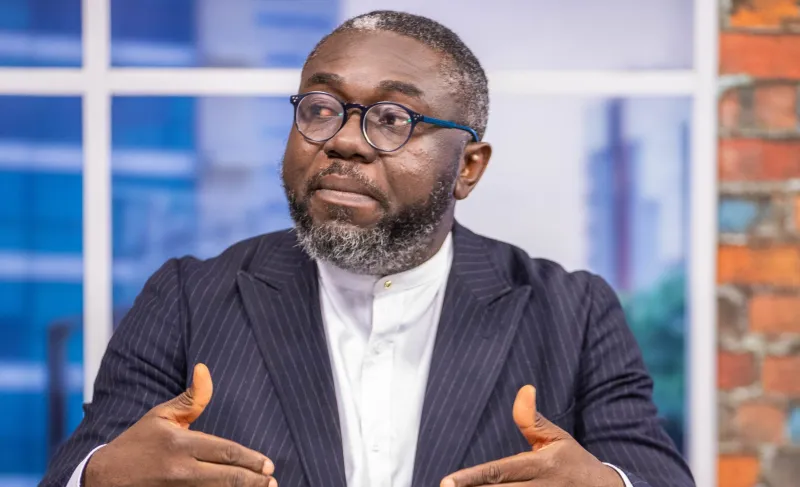An Accra High Court has struck out a human rights case filed by eleven West African nationals against the government of Ghana after it emerged that the applicants had already been deported to their respective home countries.
The case, which carried both national and international implications, centered on allegations of unlawful detention and repatriation procedures that the deportees claimed violated their fundamental rights.
The group, comprising four Nigerians, three Togolese, two Malians, one Gambian, and one Liberian, had approached the court in an attempt to resist their deportation.
They filed two separate applications: an injunction to prevent their removal and a habeas corpus writ demanding that the state produce them before the court.
When the case was called, presiding judge Justice Priscilla Ofori directed that key state institutions be notified of the suit, including the Attorney General, the Chief of Defence Staff, and the Comptroller-General of Immigration. She underscored the matter’s potential to affect Ghana’s international obligations and its human rights record.
However, lead counsel for the deportees, Oliver Barker-Vormawor, informed the court that both applications had been overtaken by events. According to him, his clients were forcibly repatriated over the weekend, rendering the case moot.
“We had before the court two applications—one for a writ of habeas corpus and the other for an interim injunction preventing repatriation. Unfortunately, the court adjourned the matter to this morning without granting interim relief.
“Over the weekend, the applicants were deported, and as such, our applications have become moot. This is precisely the injury we sought to prevent.”
Osagyefo Mawuse Oliver Barker-Vormawor, Lawyer
Rights Undermined
He stressed that the failure of the court to act promptly had undermined the very rights the applicants had sought to protect. He urged the judiciary to treat similar urgent applications with greater sensitivity in the future, warning that delays in granting interim measures could erode public confidence in the justice system.

Barker-Vormawor added that the issue was especially significant given Ghana’s role in hosting persons deported under an agreement with the United States, which is expected to result in more asylum seekers and displaced persons arriving in the country.
Justice Ofori expressed her dissatisfaction with the deportation of the applicants while the matter was still pending before her court. Although she acknowledged that the deportations had effectively made the applications redundant, she signaled concern that such actions could compromise judicial processes.
With the deportees already outside Ghanaian jurisdiction, she granted the request by counsel to withdraw the motions and accordingly struck out the suit. The case has reignited debate about Ghana’s role in international deportation arrangements and the country’s obligations under human rights law.
The deportation of the eleven West African nationals stems from an arrangement between the Government of Ghana and the United States under the Trump administration’s anti-immigration drive.
Under the memorandum of understanding, Ghana agreed to serve as a transit and host point for certain deported West African nationals, facilitating their return to their countries of origin.
The deal, which was first announced by President John Dramani Mahama during a media encounter on September 10, 2025, has attracted both domestic and international attention. The President explained that Ghana’s decision was based on humanitarian considerations and a commitment to Pan-African solidarity rather than material benefits.
Ghana’s Foreign Affairs Minister Samuel Okudzeto Ablakwa later reaffirmed this position, stressing that the agreement carried no economic incentives but reflected Ghana’s longstanding principles of cooperation and regional responsibility.

Despite this framing, the arrangement has generated debate among civil society groups and legal practitioners, who argue that the deal risks exposing Ghana to reputational damage if it is seen as complicit in forced deportations that may not adhere to international human rights standards.
The human rights case filed by the eleven deportees was widely viewed as a test of how Ghana’s judiciary would balance state sovereignty, international agreements, and the fundamental rights of individuals facing expulsion. With the suit struck out after the deportees’ removal, those questions remain unresolved.
For now, the outcome has highlighted the tensions between judicial oversight and executive action in matters of deportation and human rights enforcement. As Barker-Vormawor warned, similar cases are likely to emerge in the future, especially as more displaced persons arrive under the U.S.-Ghana arrangement.
The challenge, he argued, will be whether Ghana’s courts can respond swiftly enough to ensure that the rule of law is upheld in cases where liberty and human dignity are at stake.
READ ALSO: Oil Prices Edge Higher as Iraq-Kurdistan Pipeline Deal Nears Approval



















